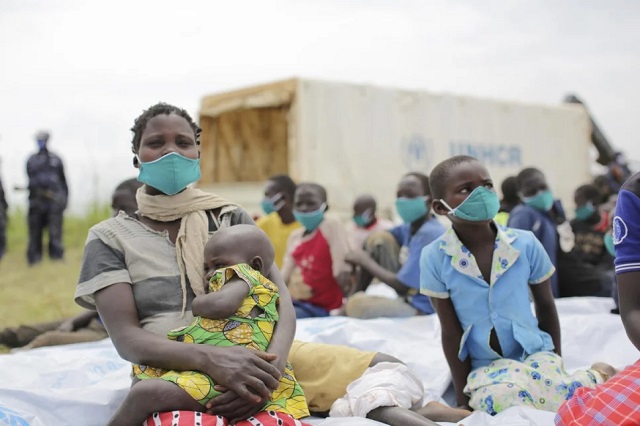
Nairobi, Kenya | Xinhua | The World Food Programme (WFP) said Wednesday it requires 226.5 million U.S. dollars to provide full rations for refugees across Eastern Africa for the April to September period.
WFP said in a joint statement with the UN refugee agency, UNHCR, that the spiraling costs, surging conflict, and soaring climate disasters create a desperate future for millions of refugees across Eastern Africa.
“The unfortunate reality is that eastern Africa is confronted with a year of unprecedented humanitarian needs, driven by severe climate shocks, ongoing conflict and instability, and surging food and fuel prices,” said Michael Dunford, WFP’s regional director for eastern Africa said.
The UN agencies warned that millions of displaced families across the region will fall deeper into hunger as food rations dwindle due to humanitarian resources being stretched to the limit as the world grapples with a toxic cocktail of conflict, climate shocks, and COVID-19, combined with spiraling costs of food and fuel.
The UN agencies said the growth in refugee numbers has not been matched by a growth in resources, forcing WFP to make difficult decisions about who receives food assistance and who goes without.
More than 70 percent of refugees currently in need of assistance do not receive a full ration due to funding shortfalls, WFP said.
The UN agencies said despite efforts to make resources stretch through prioritization schemes, meaning food assistance is prioritized for the most vulnerable families, the sheer number of refugees in need of support has grown, along with the gap between resourcing and needs.
The number of refugees in eastern Africa has nearly tripled in the past decade from 1.82 million in 2012 to almost 5 million today including 300,000 new refugees last year alone, according to the UN.
Clementine Nkweta-Salami, UNHCR’s regional bureau director for the East, Horn of Africa and the Great Lakes said refugees and internally displaced people are at the center of the food ration cuts, compounding a desperate situation for millions of people uprooted from their homes and often relying on aid to survive.
“More and more children below the age of five years are experiencing high levels of stunting and wasting, as they lack the nutrients to grow and develop,” Nkweta-Salami said.
The UN agencies said there is likely to be little relief through 2022 as the conflict in Ukraine will cause a wave of collateral hunger by further exacerbating existing problems such as record-high food prices.
“Families do not know where their next meal will come from and are taking on huge debt, selling off what they can, or sending their children to work,” Nkweta-Salami said.
*****
Xinhua
 The Independent Uganda: You get the Truth we Pay the Price
The Independent Uganda: You get the Truth we Pay the Price



